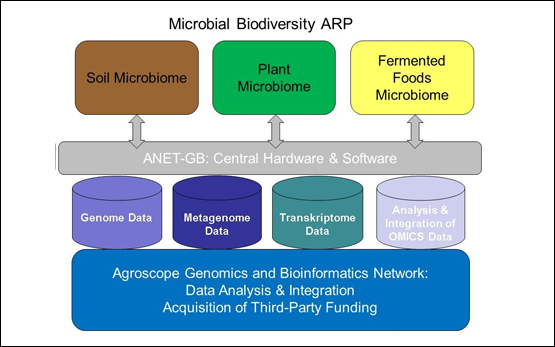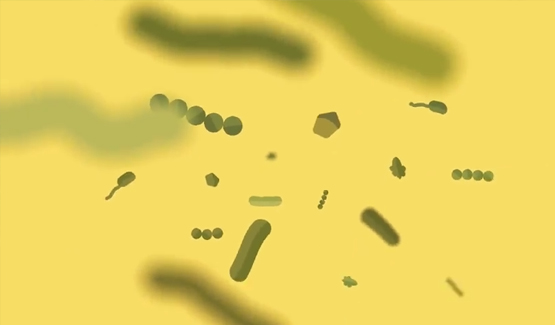The ARP ‘Microbial Biodiversity' (MicBioDiv) aims to study and describe microbiomes - i.e. the totality of microorganisms in an ecosystem - as well as the functions of the most important players in three ecosystems that are relevant for the agriculture and food sector.
These ecosystems are dealt with in three work packages, with the interdisciplinary cooperation of Agroscope Institute researchers. Work Package 1 deals with the soil microbiome, with its manifold functions in agriculture. Work Package 2 analyses the plant microbiome. Plants form a core agricultural product group interacting with microorganisms in a wide variety of ways. This work package aims to identify microorganisms which have a favourable influence on the plants, and which e.g. reduce pathogen infestation [1]. Work Package 3 analyses the microbiomes of fermented dairy products, which are important Swiss agricultural commodities.
An additional fourth work package creates an Agroscope Network for Genomics and Bioinformatics (ANET-GB) that aims to safeguard and expand methodological know-how for Agroscope research. In this way, it is hoped to extend the competencies of molecular-genetic diagnostics to further areas beyond the microbial context in the medium term.







